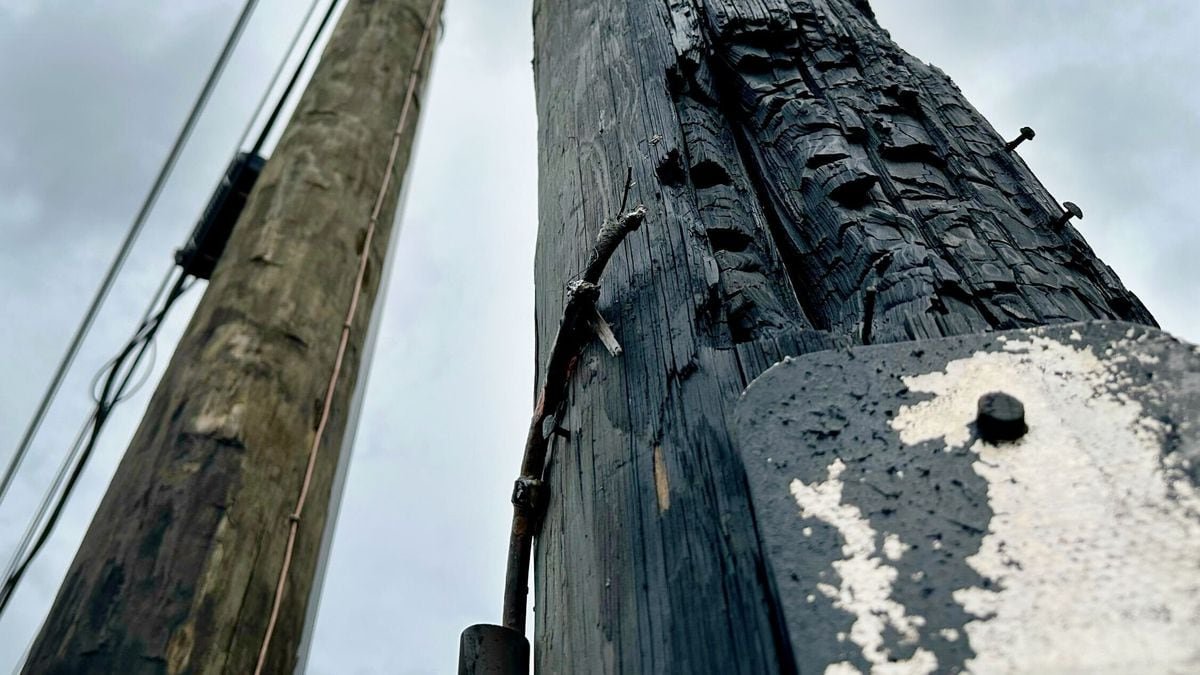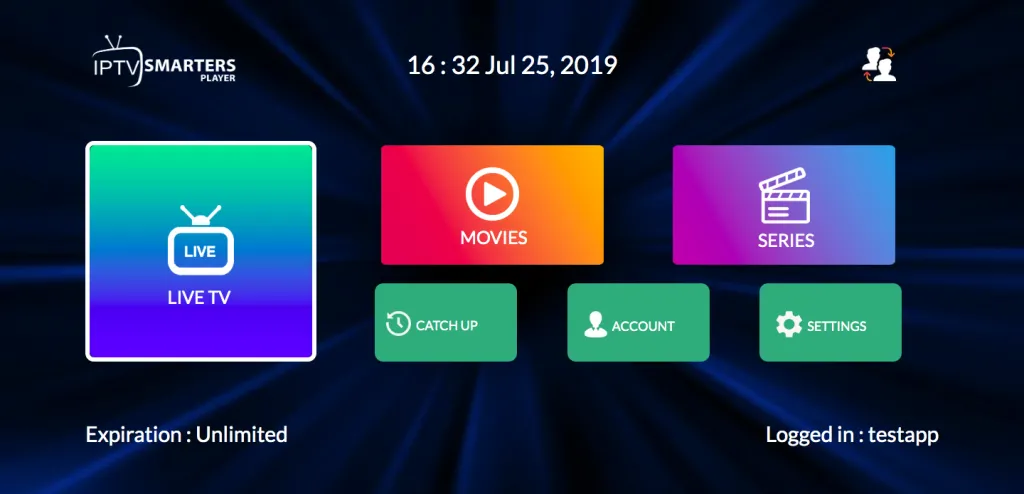
PINELLAS PARK — A hint of smoke smell still hung in the air along Park Boulevard near 73rd Street North, days after a utility pole caught fire and, according to the provider, sparked a mass Spectrum internet outage Saturday. The frayed end of a snapped cable jutted off the charred pole as the possible culprit.
That was the extent of the visible damage. The grass below remained mostly green.
How could one isolated pole fire cause potentially thousands in Pinellas and Manatee counties to lose internet — and for some AT&T customers, data and cell phone service — for most of a day? And what does this one day, reminiscent of outages after a hurricane, portend for how vulnerable internet infrastructure could be during a storm?
Here’s what we know:
How did this happen?
This electricity pole caught fire at about 4 a.m. Saturday, according to the Pinellas Park Fire Department. While Duke Energy initially provided a different address for the incident, the company subsequently clarified that the pole stands at 7321 Park Blvd. in Pinellas Park.
Duke has not yet determined a cause of the fire, but spokesperson Ana Gibbs said they can happen for a variety of reasons, like when a tree comes into contact with the electrical current running through the wires.
Many people in Pinellas and Manatee woke up without internet, sending Tropicana Field officials scrambling to tee up a backup server before the Tampa Bay Rays took the field for a game.
It’s still unclear how many people and businesses were impacted. The Tampa Bay Times has asked Charter Communications, the company whose services are branded as Spectrum, for an estimate multiple times but the company has declined to provide one.
“We got everybody back up and running by (Saturday) afternoon. That was our main focus,” said Lorelie Johnson of Charter Communications.
The reason that a fire on an electricity pole impacted internet and cell service is because of how interconnected our grid has become, experts said. Electric utilities allow telecommunications companies to use their poles for fiber optic internet cables, and poles can also be used as 5G cell towers, said Ted Kury, the director of energy studies for the Public Utility Research Center at the University of Florida.
Both Verizon and Frontier also have cables on that same pole or underground beneath it, the companies told the Times. A Frontier spokesperson said its telecommunications service to customers was not impacted by the fire. Verizon said its wireless customers also saw no impact, but “a few business customers in the area” may have seen “limited service interruptions” to their internet.
Just because other companies didn’t experience outages doesn’t mean Charter Communications did something wrong, said Mark Jamison, director of UF’s Public Utility Research Center. Companies configure their networks differently.
“It’s possible there’s more to it, but it’s quite feasible” that one broken fiber could trigger a large outage, Jamison said. “You’re going to have fiber optic line, it’s designed to serve a lot of people. So once you sever it, everyone downstream would be out for a while.”
Catch up on top stories before rush hour
Become a Times subscriber to get our afternoon newsletter, The Rundown
We’ll break down Tampa Bay’s biggest environment, politics, business, education and culture news every weekday.
You’re all signed up!
Want more of our free, weekly newsletters in your inbox? Let’s get started.
Telecommunications companies rarely build in many redundancies to guard against outages in local networks, he said, because that’s “very expensive.”
Should this raise concerns about hurricane readiness?
Yes, said Kury, the energy expert. While state regulators have oversight over how electricity lines are hardened for storms, they don’t consider how other services using the same poles could be affected by those decisions.
Telecommunications companies are generally less regulated, because it’s assumed that unlike with monopoly power companies, customers can take their business elsewhere if service is bad. But changing providers isn’t always cost-free, Kury said, and there’s no guarantee that people have multiple options in their area.
“Should this be a cause for concern? Absolutely,” he said. “I think it’s critical for our infrastructure as a whole going forward that we take a more comprehensive view of utility service and what it means to people and how we ultimately pay for it.”
The Florida Public Service Commission, which regulates power companies, previously decided that it will not regulate pole attachments, Kury added, leaving it up to the utilities to work out how much they should charge each other to use poles and how much infrastructure will be clustered.
But Jamison said that there’s no silver bullet for protecting lines. While burying lines is often viewed as a hurricane-proof solution for power companies, sometimes doing that can risk cables getting washed out of the ground when there’s significant storm surge, he said.
If I lost internet, will I get a credit or refund?
It’s not clear. Some customers have reported receiving information about a possible credit for any outage that lasted longer than 4 hours.
Charter Communications spokespeople have repeatedly declined to answer questions about this policy, saying only that people with questions can contact customer service.
Times staff writers Michaela Mulligan and Colette Bancroft contributed to this report.

